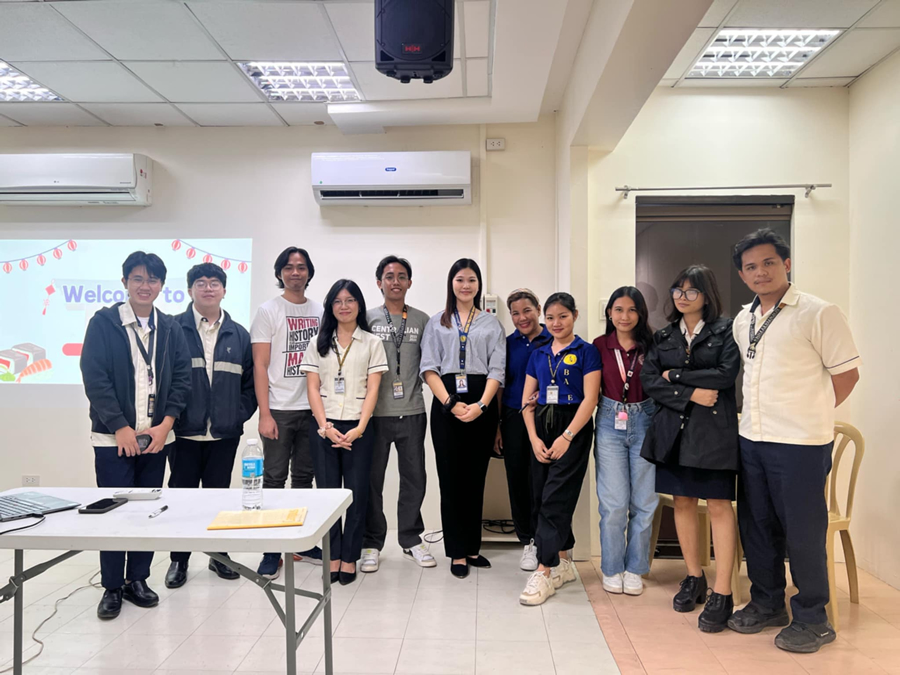By Louise Vinzy Bon A. Ramos, BA ELS-4, Centralian Link Intern

A Glimpse into Japan: Hannae Sato shares insights on culture, language, and traditions in her first class session at Henry Luce III Library.
On February 10, 2025, Hannae Sato, a Japanese exchange student, led her first-ever class session in the Henry Luce III Library on the fourth level, providing a unique educational opportunity. Students from the College of Computer Studies and the College of Hospitality Management participated in the session, which was a practicum for her major.
The meeting began with a warm welcome by Prof. Lesley Joy L. Dignadice, Acting Director of the Local and International Linkages and Affiliations Center (LILAC). Her brief opening remark established the tone for the enlightening talk that followed.
After a brief introduction by Prof. Dignadice, Ms. Sato started her presentation with an intriguing look into Japan. The rich cultural heritage of the nation, including its historical islands and traditional food, was shown to the students. Hannae talked about the unique features of Japan’s islands, such as the natural beauty of Hokkaido and the tropical charm of Okinawa, and she presented detailed information about the country’s culinary delights, such as sushi, ramen, and tempura.
Hannae also tackled about the Japanese uniforms, where she explained that only Junior High School students are required to wear uniforms in Japan. It is considered as one of the distinctive features of Japan’s educational culture.
The traditional Japanese clothing known as the kimono is one of the centerpieces of Ms. Satos’ presentation. It is worn in ceremonies and on important occasions. Her explanation of the cultural significance of the kimono and its value stoked the student’s interest.
Ms. Sato taught the students on the basics of Japanese greetings including “Konnichiwa” and “Arigatou,” which they eagerly demonstrated. It was interesting to them to learn these idioms and how they reflect Japanese manners and traditions.
Students’ knowledge of Japanese language and culture was enhanced by the workshop, which also promoted deep communication.
